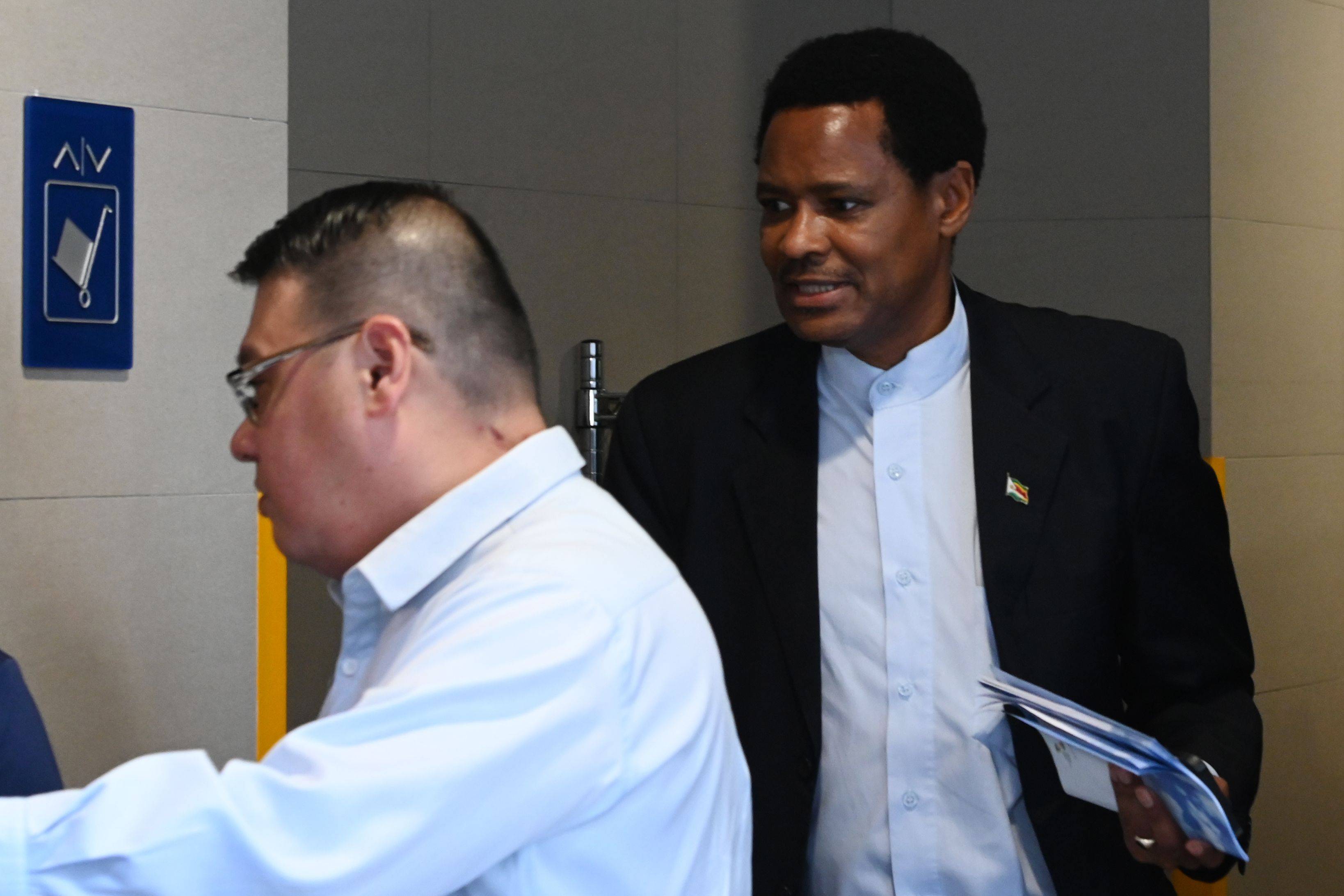SINGAPORE: Former Zimbabwe leader Robert Mugabe died aged 95 at Gleneagles Hospital in Singapore, the Ministry of Foreign Affairs (MFA) said on Friday (Sep 6).
“The Ministry of Foreign Affairs expresses its condolences on the passing of the former President of the Republic of Zimbabwe this morning at Gleneagles Hospital in Singapore,” MFA said in a statement.
“The Ministry is working with the Embassy of Zimbabwe in Singapore on the arrangements for the late Mr Mugabe’s body to be flown back to Zimbabwe.”
Mr Mugabe died at about 10.40am, said a senior Zimbabwean diplomat.
READ: Former Zimbabwe leader Robert Mugabe dies aged 95
READ: Robert Mugabe: Liberation hero turned despot
Mr Claudius Nhema, Zimbabwe’s Chargé d’Affaires to Singapore, was seen at the Singapore Casket building in Lavender on Friday afternoon.
Also spotted in the area were a car with diplomatic plates and a hearse.

Zimbabwe’s Charge d’Affairs Claudius Nhema arrives at Singapore Casket in Singapore on Sep 6, 2019, after news that former Zimbabwe president Robert Mugabe, who had been hospitalised in Singapore for an undisclosed ailment, had died. (Photo: AFP/Roslan RAHMAN)
Claudius Nhema, Zimbabwe Charge d’ Affaires to Singapore in a car with a diplomatic licence plate parked outside Singapore Casket on Sep 6, 2019. (Photo: Try Sutrisno Foo)
Mr Mugabe’s death was announced on the official Twitter account of Zimbabwe’s President Emmerson Mnangagwa.
“It is with the utmost sadness that I announce the passing on of Zimbabwe’s founding father and former President, Cde (Comrade) Robert Mugabe,” the post said.
Last month, it was reported that Mr Mugabe has been receiving hospital care for an unknown illness in Singapore since May.
READ: Former Zimbabwe leader Mugabe in Singapore hospital since May: President
The former political prisoner turned guerrilla leader swept to power in 1980 elections after a growing insurgency and economic sanctions forced the Rhodesian government to the negotiating table.
In office, he initially won international plaudits for his declared policy of racial reconciliation and for extending improved education and health services to the black majority.
But that faded rapidly as Mugabe cracked down on his opponents.
Adam Molai, son-in-law of former Zimbabwean president Robert Mugabe, arrives at the Singapore Casket Building, on Sep 6, 2019. (Photo: AFP/Roslan Rahman)
During the 1980s, he led an infamous campaign known as Gukurahundi during which an estimated 20,000 dissidents were killed.
The violent seizure of white-owned farms turned him into an international pariah – though his status as a liberation hero still resonates strongly across Africa.
As Mugabe’s health weakened, the military finally intervened to quash his second wife Grace’s presidential ambitions in favour of their preferred candidate, Mnangagwa, Mugabe’s vice president at the time.
Mnangagwa took over in November 2017 and was elected in July last year.





